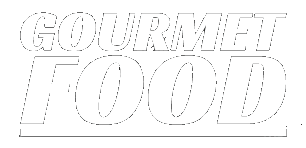
Strength training is an essential type of exercise and a key factor in maintaining a healthy weight. It also helps build muscle, which will help your body begin to burn calories more efficiently. As you gain muscle, you’ll also experience improved balance, flexibility, coordination and bone health.
But aside from kettlebells, resistance bands and running shoes, there’s another essential element involved in building muscle. Diet has the ability to play a large role in how efficiently and effectively you bulk up.
Guess what? Simply adding more protein to your plate isn’t exactly the answer, though it may seem the obvious choice. After all, protein is made up of amino acids, which are essential for building muscle. However, you can’t build more muscle with just amino acids. Your body also needs lots of supporting nutrients, such as certain carbohydrates, heart-healthy fats and even a little H20. It’s the combination of protein, those supporting nutrients and eating adequate calories that will help you fuel your body to reach your goals.
Ready to build more muscle? Here are a few small diet tweaks that can help you:
1. Don’t cut out carbs.
Carbohydrates are especially important when building muscle. Eat carbohydrate-rich foods at breakfast to replenish fuel that’s broken down during sleep. After a workout, eat them to restock glycogen burned during exercise. Carbohydrates are what your body uses for fuel during anaerobic exercises like weightlifting. Additionally, carbs are broken down into glucose, which stimulates insulin, a hormone that transports amino acids into muscle tissues.
It’s best to choose high-quality carbohydrates because refined carbohydrates — like those found in white bread, white rice, white pasta, sugar-filled snacks and cereals — cause a rapid spike in blood glucose, followed by a sharp decline. Energy levels plummet, along with the motivation for strength training. Instead, load up on minimally processed whole grains, beans, vegetables and fruits, which deliver fiber, minerals and nutrients but keep blood sugar steady.
2. Boost your intake of heart-healthy fats.
Fat contains 9 calories per gram, more than double that of carbohydrates and protein. But doesn’t that make it twice as difficult to burn off? It depends on how you look at it. When it comes to strength training, fat is doubly efficient in providing your body with energy to fuel your exercise. Fat is also necessary for nutrient absorption of fat-soluble vitamins (A, D, E and K). So, if you’re going to be eating fat make sure to choose heart-healthy fats like monounsaturated fats, polyunsaturated fats and omega-3 fats.
3. Spread out your protein intake throughout the day.
Unlike carbohydrates and fat, excess protein isn’t stored for energy, so protein-loading at one meal isn’t beneficial. There’s a limit to how much protein the body can use to build muscle at any given time. A study from the University of Texas looked at protein synthesis efficiency in two groups. The first group ate a moderate 30-gram serving of protein (the amount you’ll find in about 3 ounces of roasted chicken breast), while the second ate a larger serving that contained 90 grams. Despite the second group’s threefold increase in protein, the researchers found no greater boost in muscle synthesis. On average, the group who ate 90 grams of protein got the exact same benefits as those who ate 30 grams — a 50% boost in muscle-building activity. If your goal is to build muscle, you’ll get the most bang for your protein buck by spreading your daily intake out among all your meals.
4. Pick quality protein from real food.
Protein drinks, powders, supplements, chocolates, cereals, bars and beyond are everywhere, but are they necessary? Not if they replace whole, unprocessed foods in your normal diet. Protein from naturally occurring sources, such as seafood, lean meats, nuts and dairy, also contains essential vitamins and nutrients. Protein powders and shakes do not offer any muscle-building benefit above and beyond what real food does. And most people, even athletes, can get everything these products offer by eating natural sources of lean protein. Stick to protein-rich whole foods spread throughout the day.
5. Drink lots of water.
Your muscles are thirsty. Muscle fibers are more than 70% water. When muscles aren’t well-hydrated, protein production is inhibited and sometimes even starts to break down. Dehydration can also impact your performance, slow you down, cause greater damage to muscles and even impact digestion. Water will keep your GI tract healthy, and it helps you feel full.
The takeaway? Go for a winning combination
Aim to eat protein-rich foods alongside high-quality carbohydrates that are full of fiber and heart-healthy fats. Pairing these powerful nutrients will not only keep you fuller longer, but they also will give you the energy you need to continue strength training and building muscle. Make a diet tweak by incorporating foods from the list below into your diet:
Lentils: Plants don’t get more protein-packed than these little legumes, with 18 grams of protein and 16 grams of fiber per cup.
Edamame: These beans are a starchy mix of protein and fiber (8 grams and 4 grams, respectively, per half-cup). This powerful combination will both fill you up quickly and keep you full for long durations.
Quinoa: This protein-packed whole grain is one of the few plant proteins that supplies all nine essential amino acids. It’s high in fiber and gluten-free, making it easy to digest. Added bonus: It only takes about 15 minutes to prepare.
Chickpeas: Think beyond hummus. These tasty peas pack a mighty 10 grams of fiber and 11 grams of protein into each cup. Toss into salads, stews and sautés, or sprinkle lightly with salt and roast at 300°F for about 90 minutes (stirring every 20 minutes or so) for a crunchy pre-workout snack.
Salmon: This tasty, quick-cooking fish is packed with 27 grams protein per 4-ounce cooked fillet and 1.32 g omega-3 fatty acids. Bonus: Omega-3 fats may also increase joint mobility and can help increase blood flow during exercise.
Nuts and nut butters: Calorie-dense but smartly packaged, nuts have it all – heart-healthy fats, fiber and protein. Add a handful to protein-packed Greek yogurt, fiber-filled salads or just enjoy an ounce of them naked before a workout. A little goes a long way with nuts, but they also require no preparation, no refrigeration and are perfectly portable.
Eggs: Whites take too much credit for muscle building. It’s true that very few calories and more than half of the protein are found in the whites (57% of the entire egg), but yolks are important, too. The yolk contains essential fatty acids, folate, iron, calcium and fat-soluble vitamins — all for only about 55 calories! When you eat only the whites, you’re missing out on a lot of nutritional benefits, not to mention flavor!
Greek yogurt: Not only does Greek yogurt contain 19 grams protein per cup (6 grams more than regular yogurt), but it also comes packaged with 20% of your daily calcium needs. It’s full of probiotics, those healthy bacteria that are good for the gut, helping to increase nutrient absorption. Skip the protein powder, and add a few dollops of Greek yogurt to your morning smoothie instead.



